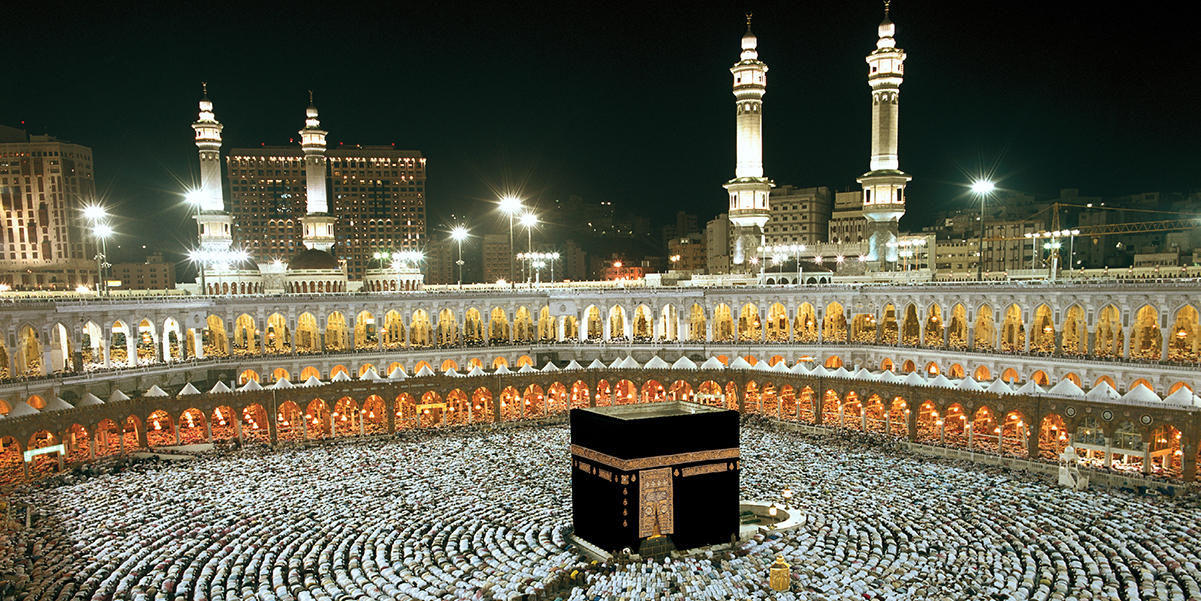
Islam is the name of the religion practiced by Muslims. People who practice Islam are called Muslims, just as those who practice Christianity are called Christians. The literal and lexical meaning of Islam means submission. Islam comes from the Arabic root letters slm, the same root letters from which the word peace (salam) comes. The term Islam itself does not mean peace, but implies finding peace (salam) through submission (islam). The term Arab is often used interchangeably with Muslim, but this is incorrect. Arab is a race, while Islam is a religion. Not all Arabs are Muslim and most Muslims are not actually Arabs. Arabs make up about 13% of the Muslim population.
 Photo: PBS.
Photo: PBS.
Islam is named for the action of submission to God’s commands and will and not to a person. Other religions are often named after a person or people. For example, Christianity is named after Christ, Judaism is named after the tribe of Judah and Buddhism is named after Buddha. Islam is not named after Muhammad because Islam existed before him. The message of previous prophets such as Adam, Abraham, Noah and Moses was to submit (Islam) to God. Hence, the message of Islam did not begin with the prophet Muhammad. It began with Adam and continued until today. As time passed, God would send new Prophets and Messengers to remind mankind of His message, to worship Him alone. Mohammed is the last of these prophets.
However, Islam is not just a religion; it can also be a name of a person. This is the case, for example, with Islam Makhachev, currently one of the best MMA fighters in the world. Islam Makhachev is a 31-year-old male fighter from Russia with a 23 – 1 – 0 pro MMA record and also currently the champion of the UFC’s lightweight division. Islam Makhachev has 23 wins with a 66% finish percentage, including 4 by knockout, 11 by submission, 8 by decision.
Currently, the Russian fighter has won 11 fights in a row, losing only to Adriano Martins in 2015 by knockout. On Nov. 22, 2022, Islam Makhachev managed to become world champion by defeating Charles Oliveira. The fight was over in the second round due to an arm triangle choke by Makhachev. On Feb. 11, 2023, the Russian will defend his title for the first time, against Australian Alexander Volkanovsky, currently the UFC’s featherweight champion.
Islam Makhachev may happen to have Islam as his first name, but he is also a Muslim. Moreover, there are many more famous people who believe in the 5 pillars of Islam. This applies, for example, to Clarence Seedorf. Indeed, the former top footballer has converted to Islam and is also married to Islamist businesswoman Sophia Makramati.
On Instagram, Seedorf Islam wrote the following:
“I am very happy and excited to join all the brothers and sisters around the world. Especially my cute Sophia has taught me more depth about Islam.”
 Screenshot: Collectif Contre l’Islamophobie en France.
Screenshot: Collectif Contre l’Islamophobie en France.
Whereas others changed their names after converting to Islam, Seedorf Islam did not. For example, boxing legend Muhammad Ali did change his name, as before his conversion his name was Cassius Clay. This was how he showed his pride in Islam.
.
There are an awful lot of good Islam quotes. Below we list the best ten of quote Islam:
“When you forget that you need Allah (God), He puts you in a situation that makes you call on Him. And that is for your own good.” Omar Soleiman
“And those who believe and do good deeds: We will surely assign them Chambers of Paradise beneath which rivers flow, in which they will dwell forever. Excellent is the reward of the [righteous] workers.” Qur’an 29:58
“Indeed, that is my path – perfectly straight. So follow it and do not follow other paths, for they will divert you from His Way. This is what He has commanded you, so perhaps you will be aware of Allah (God).” Qur’an 6:153
“The reality of manners is that they stem from a beautiful character. Thus manners are the manifestations of the integrity and strength in one’s inner personality in action.” Ibn Rajab
“And the Hereafter is better for you than the first [life]. And your Lord will give you and you will be satisfied.” Qur’an 93:4-5
“And warn them [O Muhammad] of the Day of Regret, when the matter will be completed; and [yet] they are in [a state of] heedlessness and they do not believe.” Qur’an 19:39
“Sometimes Allah (God) wants a certain level of Jannah (Paradise) for someone; and when their good deeds alone cannot bring them there, He causes them hardship.” Anonymous
“When you seek Dunya (world), you lose the Hereafter. When you seek the Hereafter, you obtain both Dunya (world) and the Hereafter. Which is the wisest transaction?” Anonymous
“And whoever puts all his trust in Allah (God), for him He will be sufficient.” Qur’an 65:3
“Do not lose hope nor be sad.” Qur’an 3:139
Of course, there can always be an Islam quote in Islam books that you like just a little bit better, but the above Islam quotes are certainly immensely popular! Want to know the answer to the question “what do you say when someone has died Islam?”? If you want to condole the other person in an Islamic way, you say the following:
“Ina Lilahi wa Ina Ilayhi Rajioen – We belong to Allah and to Him we will return.”
The second pillar of the 5 pillars of Islam, about which more later, consists of five daily canonical prayers. These prayers can be performed individually if one is unable to go to the mosque . The first prayer is performed before sunrise, the second just after noon, the third in the late afternoon, the fourth immediately after sunset and the fifth before going to bed. So praying Islam happens five times every day.
Prior to a prayer Islam, ablutions are performed, including washing hands, face and feet. The muezzin (one who calls for prayer) chants aloud from an elevated place (such as a tower) in the mosque. When the prayer begins, the imam, or leader (of the prayer), stands in front toward Mecca, and the congregation stands behind him in rows and follows him in various postures. How to pray Islam? You can read about that below.
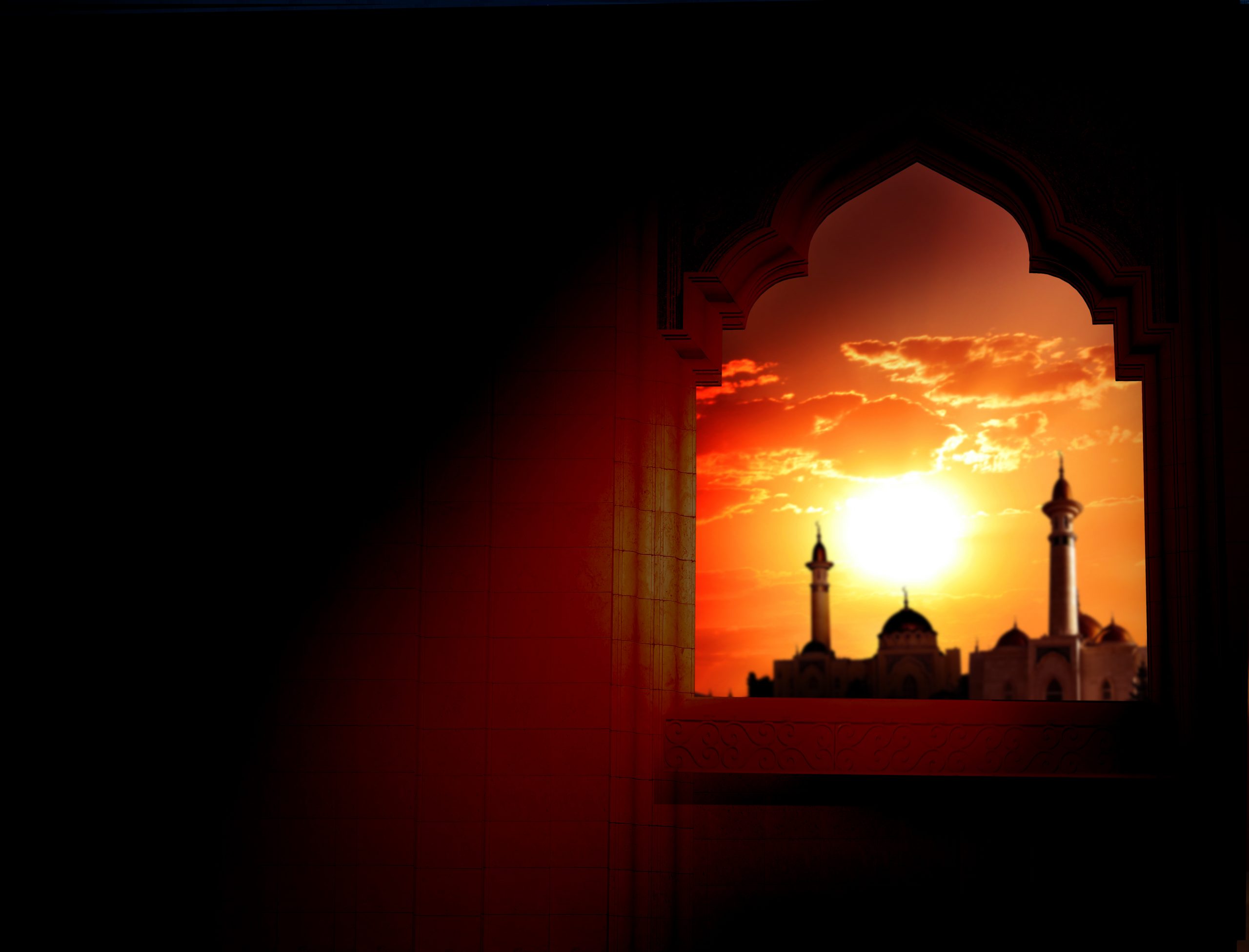
Each prayer Islam consists of two to four knee bends (rakʿah); each unit consists of a standing posture (in which verses from the Quran are recited – aloud in some prayers, silently in others), as well as a knee bend and two kneelings. With each change of posture, “God is great” is recited. The tradition of praying Islam has established the materials to be recited in each posture.
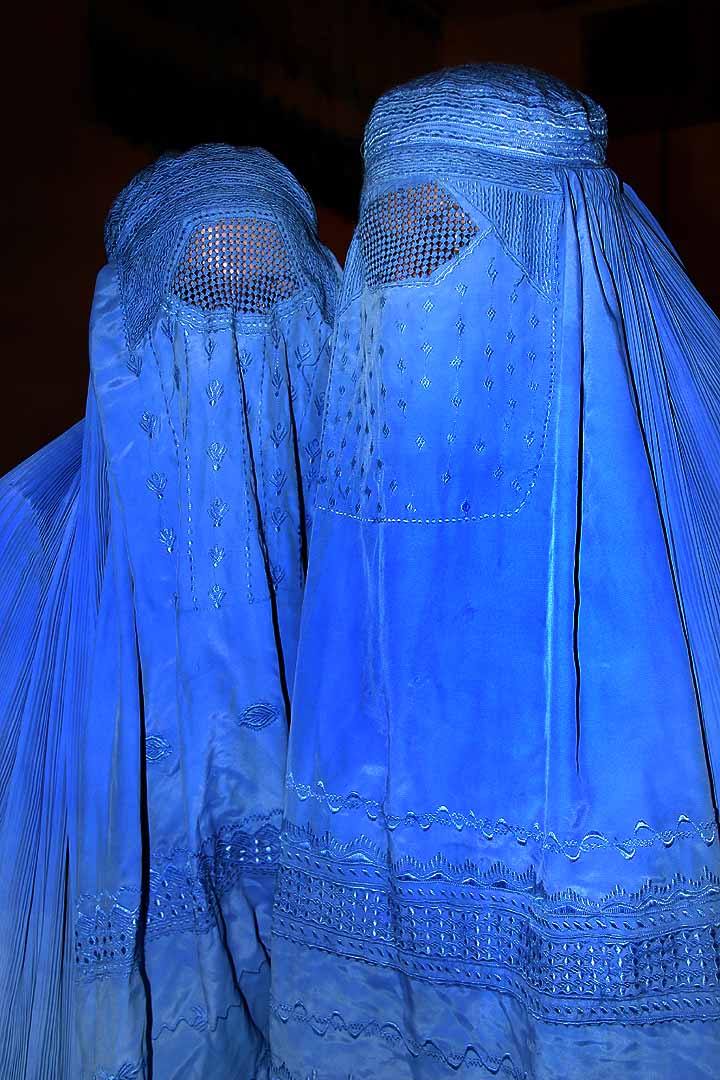
Special congregational prayers are said on Fridays instead of the prayer just after noon. The Friday service consists of the sermon (khuṭbah), which consists partly of preaching in the local language and partly of reciting certain formulas in Arabic. In the sermon, the preacher usually recites one or more verses from the Koran and builds his speech on it, which may have a moral, social or political content. Friday sermons usually have a significant impact on public opinion regarding both moral and socio-political issues.
 Muslim men kneeling in prayer, at the Umayyad Mosque, Damascus. Antonio Melina/Agência Brasil – Agência Brasil by Antonio Melina/Agência Brasil.
Muslim men kneeling in prayer, at the Umayyad Mosque, Damascus. Antonio Melina/Agência Brasil – Agência Brasil by Antonio Melina/Agência Brasil.
Although not ordained as a mandatory duty, night prayers (called tahajjud) are encouraged for praying Islam, especially during the second half of the night. During the month of Ramadan, long prayers called tarāwīḥ are offered congregationally. When learning to pray Islam, you should not forget these prayers.

According to strict doctrine, the five daily prayers cannot be waived even for the sick, who may pray in bed and, if necessary, lying down. During a journey, the two afternoon prayers may be intermingled; the sunset and late evening prayers may also be combined. In practice, however, there has been much laxity, especially among the modernized classes, although Friday prayers are still very well attended.
By now you know the second pillar of Islam, which is prayer Islam. We name the others of the 5 pillars of Islam below.
.
The first pillar of the 5 pillars of Islam is the creed: “There is no deity but God, and Muhammad is the Messenger of God,” on which membership in the community depends. The creed must be uttered at least once in a person’s life, aloud, correctly and purposefully, with an understanding of its meaning and with the consent of the heart. From this fundamental faith are beliefs derived in (1) angels (especially Gabriel, the angel of inspiration), (2) the revealed book (the Koran and the holy books of judaism and the Christianity), (3) a series of prophets (among whom figures from the Jewish and Christian traditions are particularly eminent, although it is believed that God has sent messengers to every nation), and (4) the last day (day of judgment).
Ya Allah, you have been so good to me, thank you.
– Allah Islam Quran (@AllahGreatQuran) January 6, 2023
The third pillar is the mandatory tax called zakāt (“purification,” indicating that such a payment makes the rest of one’s wealth religiously and legally pure). This is the only permanent tax imposed by the Qur’an and must be paid annually on food grains, livestock and cash after one year of possession. The amount varies by category. So for grains and fruits, it is 10 percent if the land is watered by rain, 5 percent if the land is artificially watered. On cash and precious metals it is 2 1/2 percent.
 Source: Wikipedia.
Source: Wikipedia.
Zakāt can be collected by the state and should be used primarily for the poor, but the Koran lists other purposes: the release of Muslim war prisoners, the repayment of chronic debts, the payment of tax collections, jihad (and by extension, according to Qurʾān commentators, education and health), and the creation of facilities for travelers.
After the collapse of Muslim religious-political power, the payment of zakāt became a matter of voluntary charity, depending on individual conscience . In the modern Muslim world, it is left to the individual, except in some countries (such as Saudi Arabia) where the Sharīʿah (Islamic law) is strictly enforced.
Fasting during the month of Ramadan (ninth month of the Islamic lunar calendar), enshrined in the Koran (2:183-185), is the fourth pillar of Islam. Fasting begins at dawn and ends at sunset, and during the day eating, drinking and smoking are prohibited. The Qur’an (2:185) states that it was in the month Ramadan that the Qur’an was revealed. Another verse of the Qur’an (97:1) states that it was revealed “on the Night of Strength,” which Muslims generally celebrate on one of the last 10 nights of Ramadan (usually the 27th night). For a person who is ill or traveling, the fast may be postponed to “another equal number of days.” The elderly and incurably ill are exempted by the daily feeding of one poor person if they have the means.
The fifth pillar is theannual pilgrimage (hajj) to Mecca that is prescribed for every Muslim once in a lifetime – “provided a person can afford it” and provided a person has sufficient provisions to leave for his family during his absence. On the 7th of the month, a special service is held in the holy mosque Dhū al-Ḥijjah (last in the Muslim year).
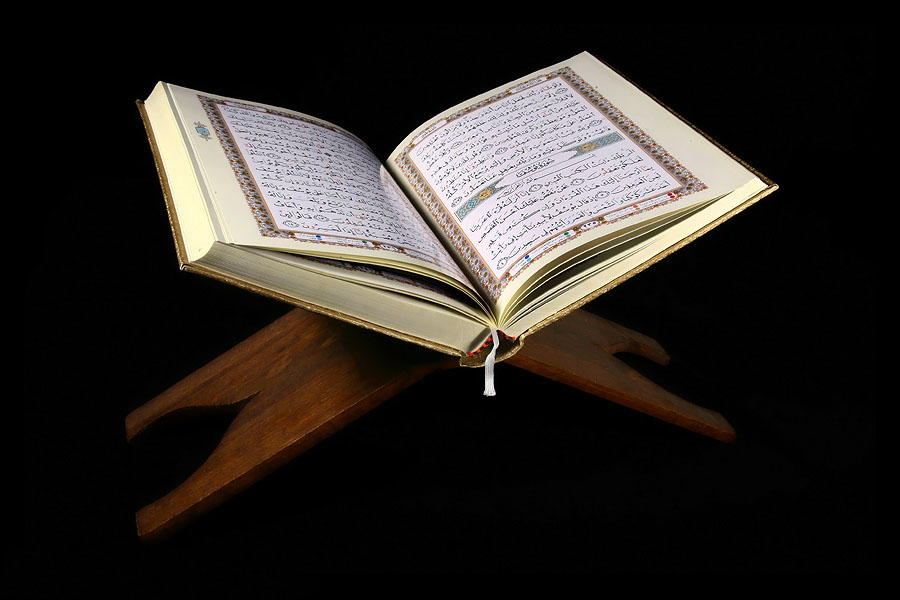
The Quran. Sayyed shahab-o- din vajedi.
Pilgrimage activities begin on the 8th and end on the 12th or 13th. All worshipers come in the state of iḥram; they wear two seamless garments and avoid sexual intercourse, cutting hair and nails and certain other activities. Pilgrims from outside Mecca adopt iḥrām at certain points on their way to the city.
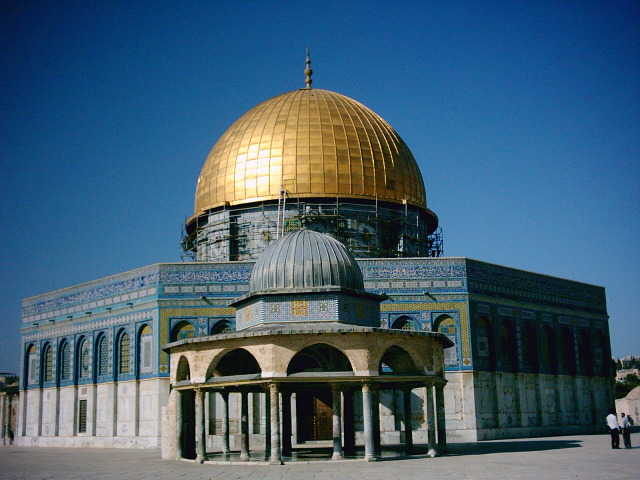 Rot Dome, built by Caliph Abd al-Malik ibn Marwan; completed at the end of the Second Fitna. Paolo Massa from Trento, Italy – Israel
Rot Dome, built by Caliph Abd al-Malik ibn Marwan; completed at the end of the Second Fitna. Paolo Massa from Trento, Italy – Israel
The main activities consist of walking around the Ka’bah, a shrine in the mosque, seven times; kissing and touching the Black Stone (Ḥajar al-Aswad); and climbing and running between Mount Ṣafā and Mount Marwah (which are now, however, only elevations) seven times. In the second phase of the ritual, the pilgrim goes from Mecca to Minā, a few kilometers away; from there he heads toward Arafāt, where it is essential to hear a sermon and spend an afternoon. The final rituals consist of spending the night at Muzdalifah (between ʿArafāt and Minā) and sacrifice on the last day of iḥrām, which is the ʿīd (“festival”) of sacrifice.
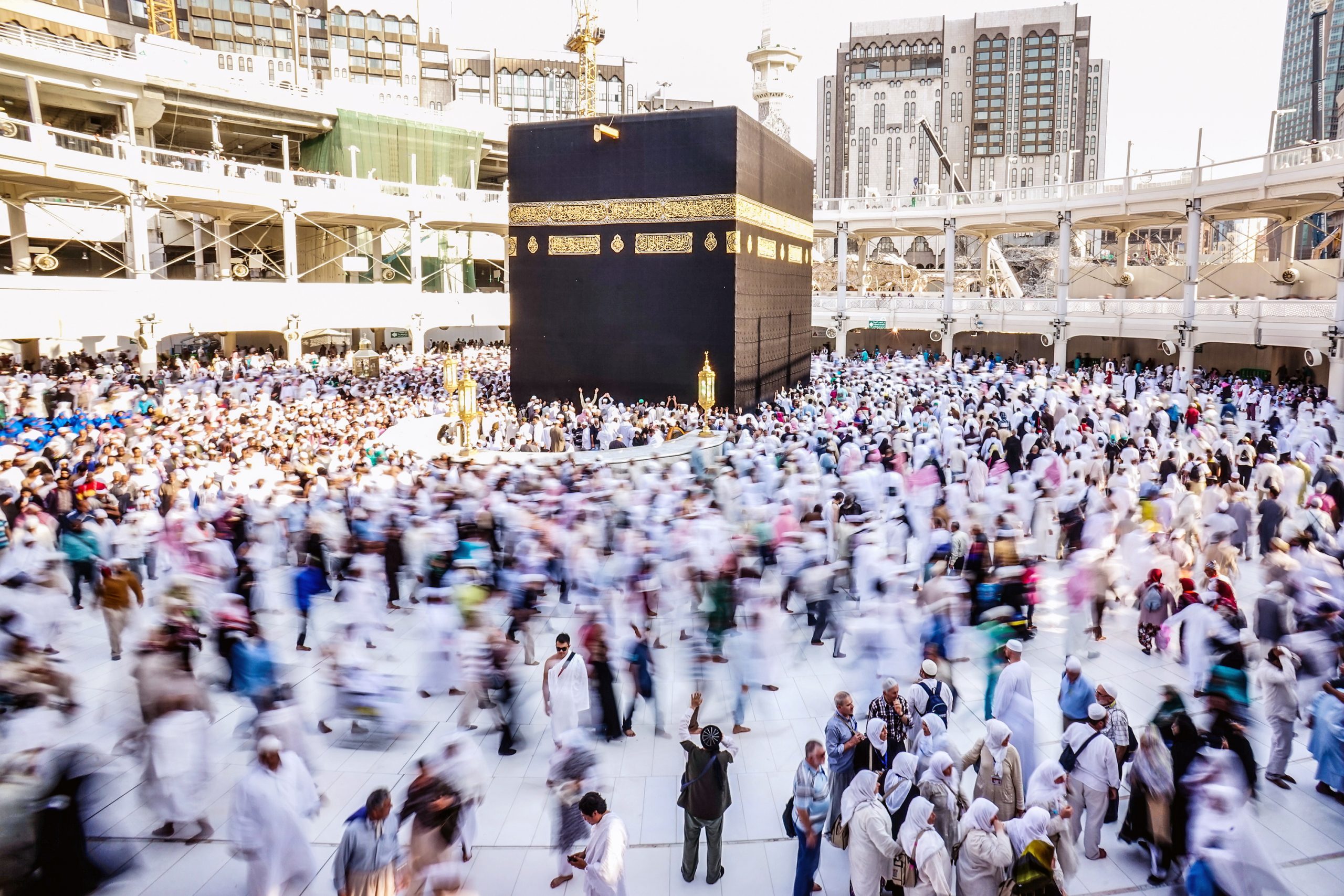
Rauf Hussin/Shutterstock.com.
Many countries have imposed restrictions on the number of outbound pelgrims due to currency problems. However, with the improvement of communications, the total number of visitors has greatly increased in recent years. At the beginning of the 21st century, the number of annual visitors was estimated at more than two million, about half of them from non-Arab countries. All Muslim countries send official delegations to the occasion, which is increasingly used for religious-political conferences. At other times of the year, it is considered meritorious to undertake the lesser pilgrimage (ʿumrah), which, however, is no substitute for thehadj pilgrimage.
Not everyone is a fan of Islam. That is evident in Erica Meiland Islam. Indeed, in her biography and the media, Meiland made several statements about the religion that were not appreciated by everyone. In her book, for example, she wrote the following: “There’s really no girl who wants to ride her bike in the summer with a headscarf on. You just want to feel the wind in your hair. That’s freedom.” So Erica Meiland Islam is against wearing a headscarf or burqa, she even calls women who wear a burqa “penguins”: “I am also in favor of a burqa ban. I once saw three of those penguins walking in Noordwijk, that’s not normal, is it?”
This did not stop there, however, as Erica Meiland Jinek Islam also went awry. Namely, she indicated that she stands by her statements, which went down the wrong way with table guest Chantal Janzen: “I like you very much, but this shocked me. I find your statements too unsubtle. You said that you know that there is not one girl who likes to wear a headscarf. Dear Erica, you can’t say that because you can’t determine that. There are lots of Muslim women who do like it.”
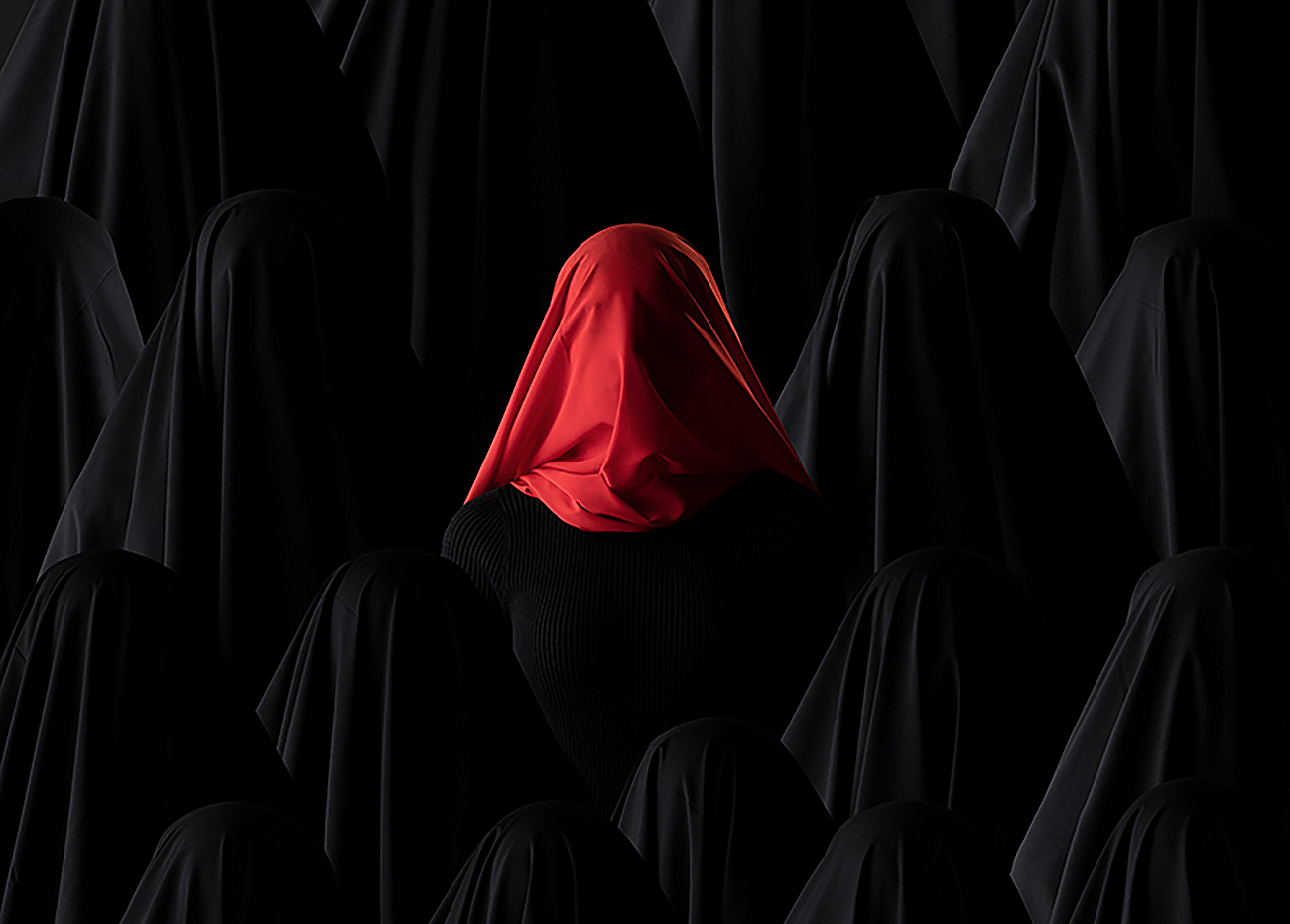
Shutterstock.
During Erica Meiland Jinek Islam, however, the protagonist did indicate that she understands that people are offended in response to a question from Eva Jinek: “Yes, but I don’t mean it offensively. I only give my opinion and they don’t have to do anything with it. I can’t ban it anyway”. She also responded to Chantal Janzen’s criticism during Erica Meiland Jinek Islam. Namely, Meiland thinks that women have been brainwashed into liking a headscarf: “That’s what I’m trying to explain. By constantly insisting on it – be pure, be docile – women like it. If I had been born that way, I would also have thought I had to cover myself up nicely for men.” Therefore, according to Erica Meiland Islam, the core lies with men, not women. By the way, the other Meilands Martien and Maxime fully agree with Erica’s statements.